How Venezuelans use Twitter to protest the ongoing humanitarian crisis
Opposition leaders were among the most
How Venezuelans use Twitter to protest the ongoing humanitarian crisis
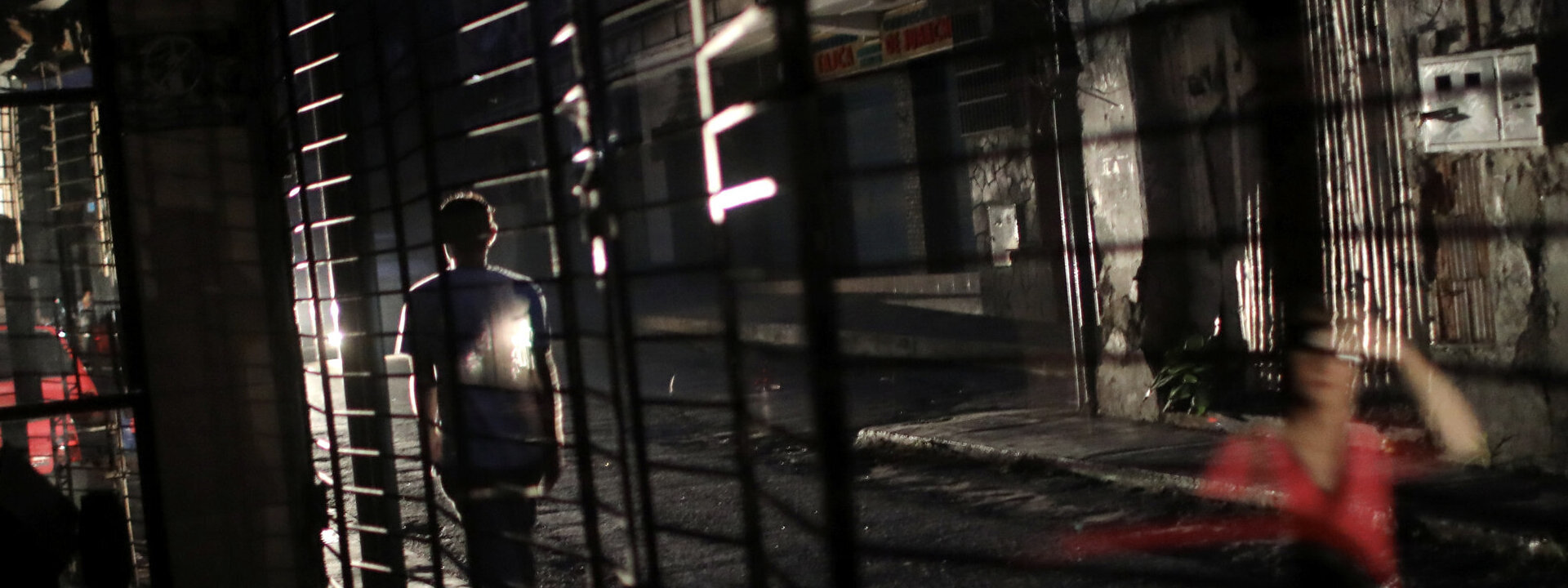
Opposition leaders were among the most influential accounts promoting hashtags connected to blackouts
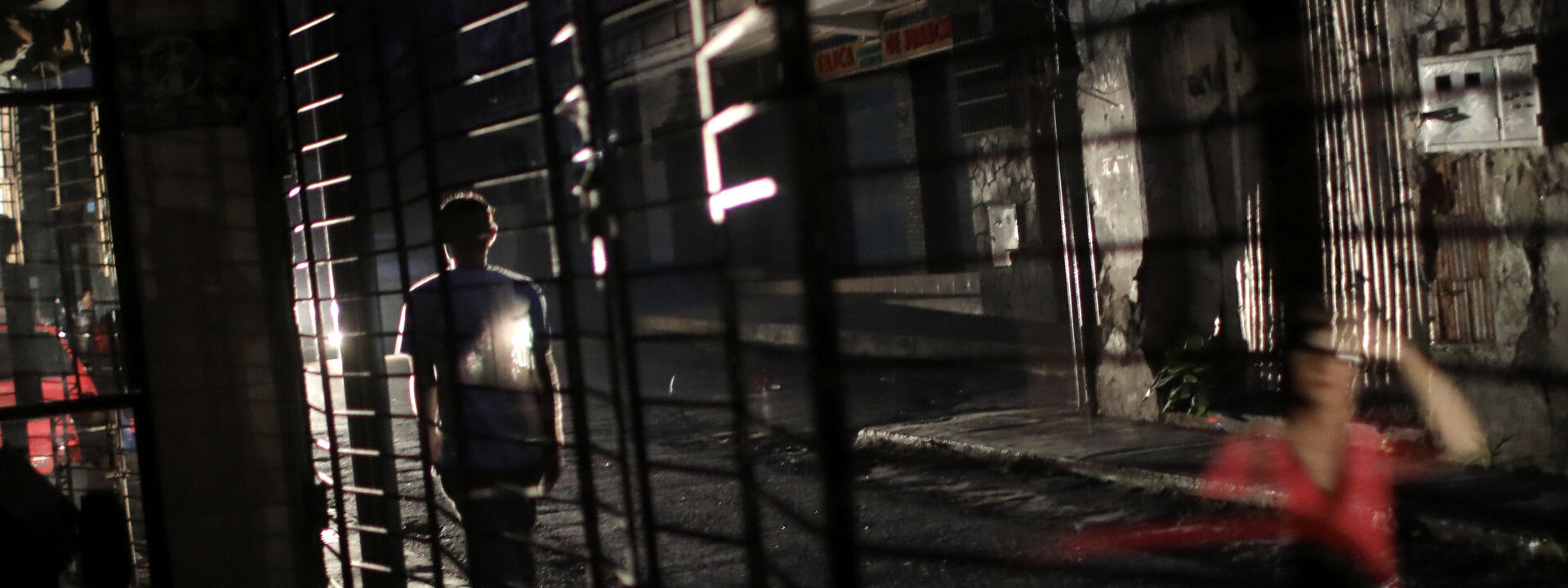
Hashtags expressing criticism of the Maduro-led government’s insufficient allocation of funds to public services were able to break through Nicolás Maduro-aligned accounts’ dominance on Venezuelan Twitter in 2020. Even though pro-regime hashtags were still more prevalent among the country’s trending topics overall, the mere fact that hashtags critical of the regime appeared in the trending topics is a sign that pro-Maduro actors’ attempts to maintain strict control over social media conversations occasionally falter.
According to ongoing monitoring by the DFRLab and its partner organization ProBox, hashtags about problems with public services started to gain prominence in April, one month after the first cases of COVID-19 were confirmed in the country. In all, 267 different hashtags linked to protests trended on Twitter between January 1 and September 30, 2020 (some of them trended more than once). Among those hashtags, #SinLuz (“Power Blackout”) was the one that reached the trending topics most often, a total of 16 times. The research found that Venezuelan media outlets and leaders opposing the Maduro regime — such as former presidential candidate Henrique Capriles — were among the most influential accounts using the hashtag #SinLuz.
Corruption and the mismanagement of public funds by the regime, as well as the economic sanctions imposed by the United States and the European Union against Nicolás Maduro and his closest allies, has deepened the economic and humanitarian crisis in the country. Access to public services has been hit particularly hard in 2020 amid the pandemic. For instance, in the Andean states of Táchira, Merida, and Trujillo, the regime recently announced a “campaign” to distribute firewood due to the scarcity of gas. A recent blackout — one of many — on September 23 affected 19 states, including the country’s capital Caracas, which had no power supply for more than 10 hours.
Demonstrators reacted by blocking the streets temporarily or protesting peacefully from their homes by banging together pots and pans — a popular form of protest known as cacerolazos in Spanish. The Observatorio Venezolano de Conflictividad Social (OVCS), an NGO that monitors human rights in Venezuela, reported that 7,004 protests occurred over the course of 2020, 1,193 of them in September alone. OVCS also found that topics such as public service failures as well as lack of access to fuel, health, and food triggered 91 percent of the September protests, of which 394 of them were related to failures in the public electrical system. Moreover, OVCS highlighted that regime security forces blocked and repressed 74 protests in September, leaving one dead, 52 injured, and 233 arrested.
ProBox’s analysis
ProBox monitors daily Twitter activity to identify, record and process the top political and social trends in Venezuela. These trends are then divided by categories, subcategories, and sectors. Likewise, it uses an in-house tool that measures inauthentic activity based in 12 indicators.
On Twitter, ProBox analyzed a sample of 1,134,966 tweets out of more than 2 million between January 1 and September 30, 2020 related to demonstrations on topics such as food, human rights, education, health, and public services. ProBox labeled the posts about the demonstrations under “social protests,” a category that has been growing since the start of the pandemic in Venezuela.
In March, 22 hashtags related to “social protests” trended in the country. This number increased to 63 hashtags trending in April. The number of tweets also increased: in March, there were 107,100 tweets mentioning these hashtags. In April, they jumped more than threefold to 331,500 tweets.
Narratives linked to protests, however, showed lower activity compared to tweets classified by ProBox as oficialista — a term in Spanish that includes official regime narratives — which have been more active than other issues in the Venezuelan Twitter conversation. In March, 51 pro-regime hashtags reached the trending topics, increasing to 69 in April. Between January and September 2020, more than 7 million monthly tweets on average were connected to the oficialistas, which is around 30 times more than those recorded about social protests. ProBox found that hashtags about social protests were the second most used during 2020 in the Venezuelan Twittersphere, only surpassed by hashtags promoted by the Maduro regime and its supporters.
In 65 percent of the pro-Maduro posts, however, ProBox found signs of inauthenticity. ProBox identified 361,126 accounts that used the hashtags categorized under social protests. Of these, 12,265 were identified as bot-like accounts, responsible for generating 27.95 percent of the total tweets (percentage of inauthenticity, as shown in the table below). ProBox found that the analyzed hashtags trended the most during August (64 times), followed by April (63), May (46), and September (46).
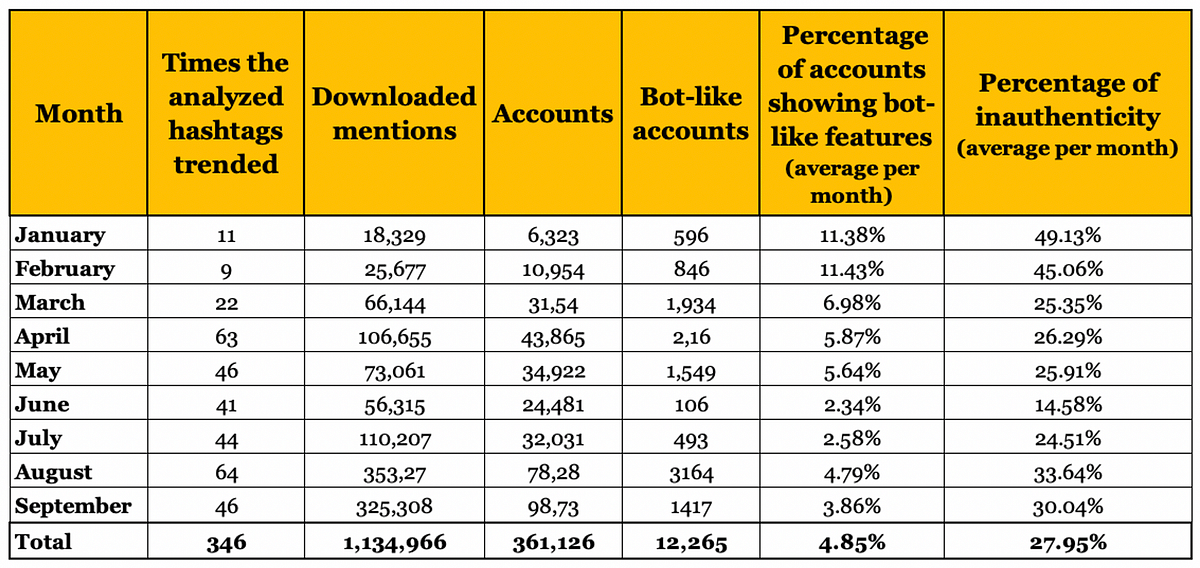
The most used hashtags on protests were related to human rights (91), followed by public services (86), and education (70).

Among the 272 hashtags on protests identified by ProBox, #SinLuz was the hashtag that trended the most (16 times) between January 1 and September 30, 2020. #SinLuz was followed by #AryenisYAlfredoInocentes (“Aryenis and Alfredo are innocent”) and #LaGentePropone (“People are proposing”), which reached the trending topics six and five times, respectively.
Twitter accounts used #SinLuz to monitor and protest against power blackouts occurring in the country. #AryenisYAlfredoInocentes first appeared on March 1, 2020 to ask for the liberation of Alfredo Chirinos and Aryenis Torrealba, a couple who worked in Venezuela’s state oil company PDVSA. Relatives and lawyers described Chirinos and Torrealba as pro-regime chavistas that tried to denounce corruption cases inside PDVSA. The Maduro regime, however, kept them in jail without a fair trial. Maduro claimed prosecutors have proof that both Chirinos and Torrealba sent confidential information about PDVSA to the United States. An analysis conducted using Meltwater Explore showed that the first account that used #AryenisYAlfredoInocentes on March 1 was the suspended account @JJaramos15.
The second hashtag, #LaGentePropone, refers to a program of the Venezuelan Christian organization Grupo Social CESAP, which monitors problems related to public services in the country on social media.
The most active accounts using #SinLuz
The DFRLab conducted an overall search of #SinLuz using social media monitoring tool Meltwater Explore. The query showed that 882,467 posts, including tweets, retweets, and replies, used the hashtag between January 1 and September 30, 2020. Although #SinLuz is a hashtag used more generally by Spanish-language Twitter accounts, Venezuela-linked users were the most active mentioning #SinLuz. Meltwater Explore identified the location of 484,833 posts, of which 357,712 belonged to accounts connected to Venezuela.
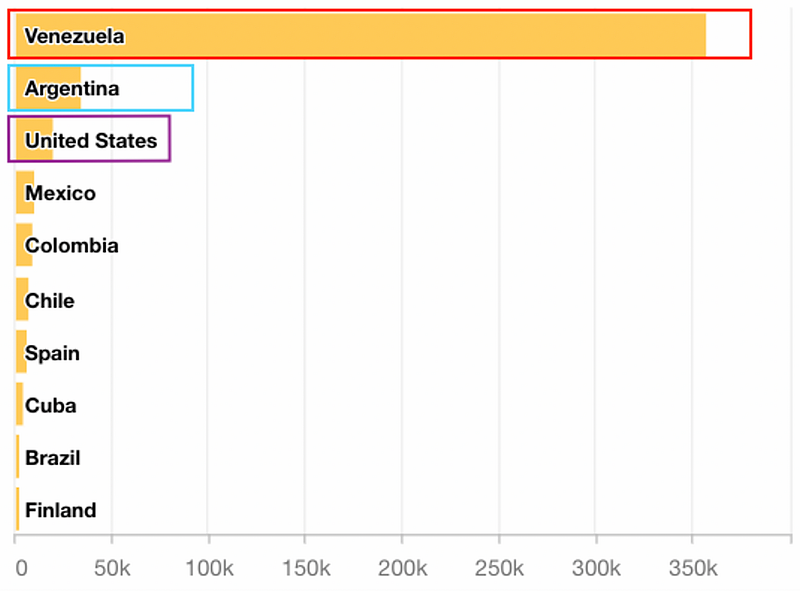
#Venezuela also appeared as the most used hashtag alongside #SinLuz, with 125,667 posts. #SinAgua (“Without water”) followed #Venezuela with 82,878 posts, as well as the hashtags #Maracaibo (82,021 mentions) and #Zulia (81,746), which referred to the Venezuelan state of Zulia and its capital Maracaibo.
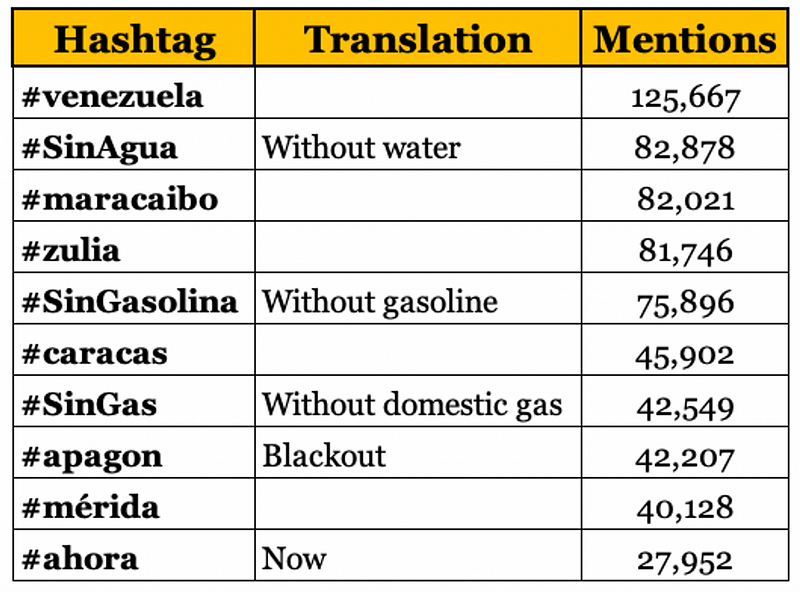
The Twitter accounts with the largest audiences using #SinLuz belonged to Venezuelan opposition leaders, media outlets, and journalists. An analysis of the 30 accounts with the most followers — between 1,479,074 and 7,231,270 followers — showed that @traffiCARACAS was the most active account, with 187 mentions of #SinLuz. @traffiCARACAS joined Twitter on December 6, 2009 and describes itself on Telegram as an account that shares information across Venezuela. A search using Twitter analysis tool TruthNest showed that, in the last 2,200 posts by @traffiCARACAS as of October 29, this account mainly used hashtags related to the status of the various services, such as gas stations under the hashtags #EstaciónActiva (in-service gas stations), #SinGasolina (stations without gas), and #SinLuz.
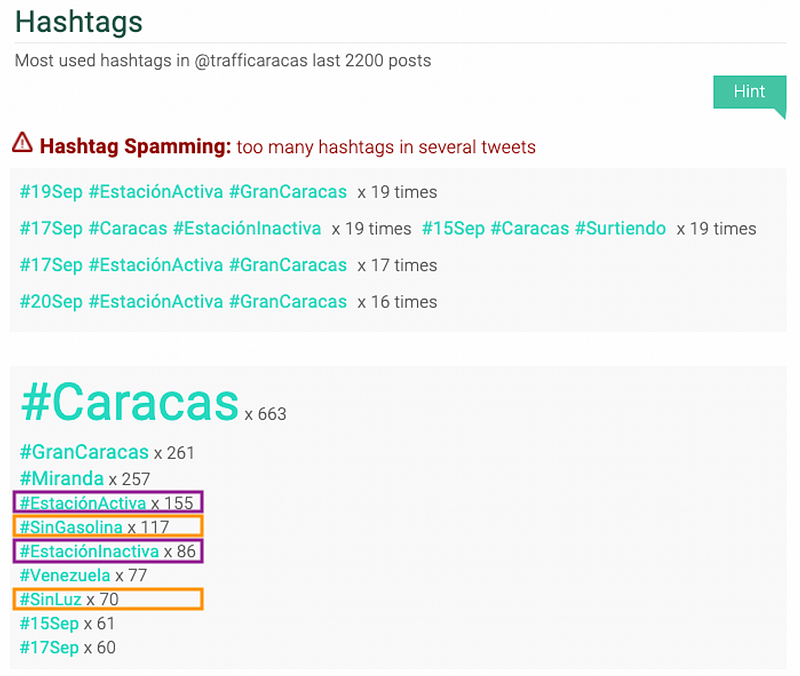
Former presidential candidate Henrique Capriles’s Twitter account was the second most active using #SinLuz, with 121 mentions. Capriles was followed by TV news broadcaster Venevisión (121 times), a private TV channel that has been pressured by the Maduro regime to stick to official narratives in its reporting, and Carlos Ocariz (27 times), who alongside Capriles, is co-founder of the opposition party Primero Justicia.
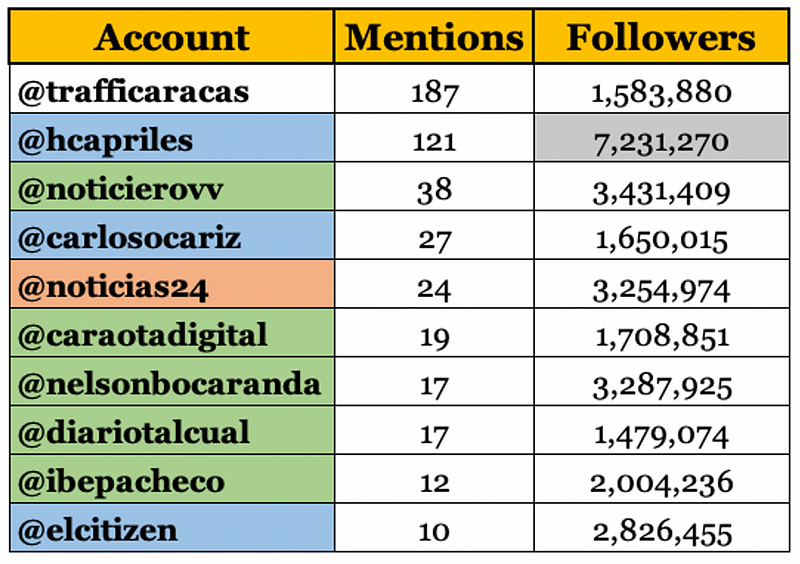
The most-engaged with posts from Capriles using #SinLuz discussed developments in the Venezuelan state of Zulia, such as blackouts and promises made by pro-regime Governor Omar Prieto that Zulians would have “electrical stability” during 2020. Both posts garnered 1,270 and 563 interactions, respectively. Capriles was Zulia’s representative to the National Congress in 1999.
Daniel Suárez Pérez is a Research Assistant, Latin America, with the Digital Forensic Research Lab.
Esteban Ponce de León is a Research Assistant, Latin America, with the Digital Forensic Research Lab.
This research was conducted in partnership with ProBox, a Venezuelan nonprofit organization “combating digital disinformation and creating consciousness through education and innovation.”
Follow along for more in-depth analysis from our #DigitalSherlocks.

